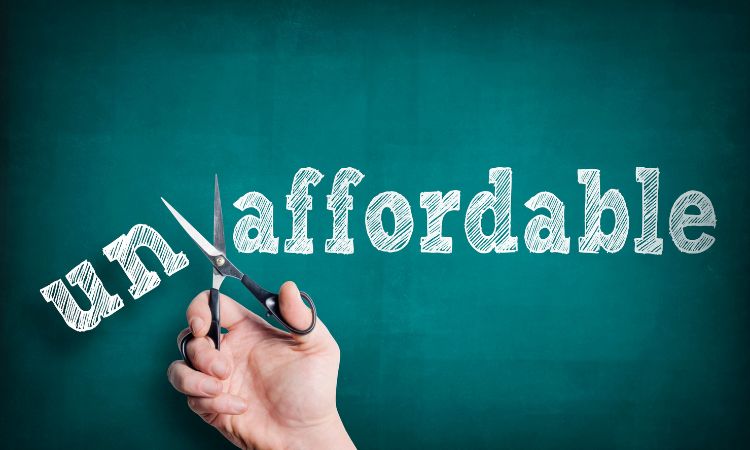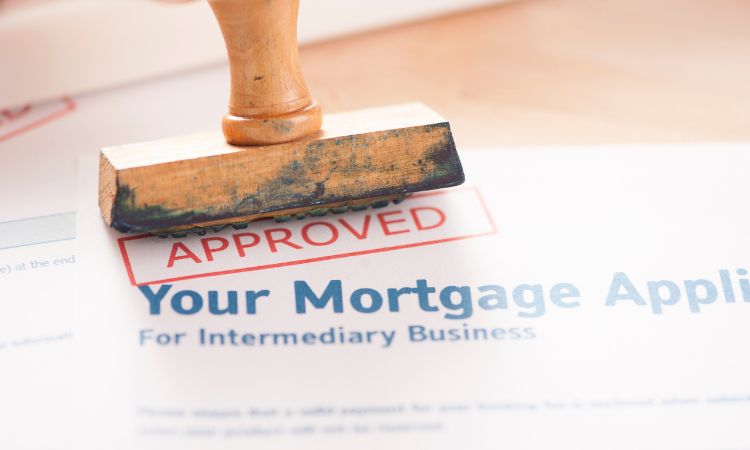Buying a house can prove an enjoyable experience. For that, we need to get all things right from the moment we decide upon buying a house, right until the time of inking the deal as well as moving in.
Understandably, there are quite a few challenges that we may encounter while buying a house. Therefore, it’s advisable to follow certain time-tested and proven steps that millions of homeowners across America have taken and met superb results.
However, over the last few years, buying a home is proving a bit difficult for most Americans due to a plethora of reasons due to various scenarios afflicting the real estate market.
Table of Contents
Current House Buying Scenarios
Over the last few years, the median age of people buying a house is on the rise. In 1981, the median age of an American home buyer was 31 years. In 2019 it stood at a dismal 47 years, shows a joint study by Deutsche Bank Global Research, Bloomberg Finance, and the US National Association of Realtors.
Furthermore, most Americans don’t have adequate funds for retirement, which delays or makes it impossible to buy a home where they can live during those golden years when there’s no active income, says a study by Associated Press and NORC Center for Public Affairs Research.
Among the millennial generation, home-buying patterns are changing. The majority of them prefer buying their first home in large cities, that’re sending real estate prices skyrocketing. Hence, they’re looking for high-end apartments where they can live all life.
In 2019, for example, people aged 22 years to 29 years, constituted 83 percent of those buying their first house. Those in the age bracket of 30 years to 39 years formed 52 percent of first time home buyers in 2024 followed by people between 40 years and 54 years of age at 23 percent, says European statistics portal, Statista.
The real estate sector worldwide, including in the US, is seeing a downfall due to the Covid-19 pandemic. Deloitte research shows in the US alone, the demand for commercial and residential real estate dipped by as high as 38 percent during 2020. Part of this drop was also due to countless businesses across America laying off staff, filing for bankruptcy, and closing shops altogether.
These factors would definitely have some impact when you try to buy a house in 2024 and possibly, even beyond.
How to Buy a House in 2024- Home Buying Process
Considering the above factors, buying a house- regardless of whether it’s your first home or one for retirement- can pose a few major hurdles. Yet, that doesn’t mean you should backtrack on the decision to buy a house because it’s also one of the steps towards wealth building.
1. Get Rid of Student Debt

Student debt can have a significant impact on an individual’s ability to purchase a home. A 2017 study by the National Association of Realtors found that student debt delays buying a house by an average of seven years.
The total outstanding student debt in the US has risen dramatically in recent years, standing at $772 billion in 2009 and reaching a staggering $1.6 trillion by 2019. This means that many students are graduating with significant amounts of unpaid debt, averaging around $30,000.
This can lead to high monthly payments of $304 for the next 10 years and can be further impacted by financial hardships such as unemployment. Additionally, the delinquency or default rate for student debt is much higher than that of auto loans, with 10.85 percent of borrowers not paying their monthly installments on schedule for 90 days or more.
It is recommended that before setting out to buy a house, individuals should focus on settling any student debt they may have.
Also Read: 10 Best & Easy Ways to Make Money as College Student
2. Aim for the Best FICO Score

FICO score is a credit score, in simplest terms. It helps lenders to determine whether you’re eligible for a loan or credit, including a home mortgage. You can get a superb FICO score by reducing outstanding credit and loans by stepping up repayment.
Particularly, tackle your student debt first.
The reason behind this is simple: student debt and delinquency can send your credit scores spiraling downwards drastically.
As a result, you might find the going tough while trying to get a home mortgage from any lender. For example, you might not have adequate money for the down payment while buying a house. Lenders will also calculate the Debt-to-Income (DTI) ratio.
There’re ways and means to overcome these hurdles. Yet, the best thing is to eliminate your student debt.
Also Read: How to Improve Credit Score as a Student – Grow faster, Be Smarter!!
3. Find Your Affordability

Determining your affordability is an important step in the process of buying a house. This includes evaluating how much money you can realistically put towards a down payment and mortgage payments based on your income, savings, and debt.
One way to determine your affordability is by using a Home Affordability Calculator, which takes into account your income, debt, and repayment capabilities. Additionally, it is important to consider the down payment required to apply for a mortgage.
The current standard for a down payment is 20 percent of the cost of the house, with the remaining 80 percent being covered by a mortgage.
4. Getting Around the Downpayment

Not many people in America are now actually able to afford the 20 percent downpayment necessary to pay for a house while taking a mortgage.
National Association of Realtors says house prices across the US are currently higher by at least 30 percent over the last five years. In 2019, they rose by a whopping seven percent. This makes downpayment fairly hard, says NAR.
Hence, considering even a house worth $250,000, a first time home buyer would require $50,000 as a downpayment. This is out of reach for most people saddled with student debt, low income, or any other reason.
Therefore, you could consider saving the money that would be a necessary down payment for a house. A regular savings account would help. Or you can invest the money in fixed return plans for a specific period till you have the amount necessary for a downpayment.
There are superb ways to get around the downpayment problem, which I will discuss later in this article.
5. Get Prequalified for a Mortgage

Before you buy a house, it’s best to get prequalified with a lender for the mortgage. This involves providing all your financial information, such as income, debt, tax liabilities, savings, and investments, among others, to the bank or lending financial institution. This can help save a lot of hassles.
The bank or financial institution will inform the mortgage value and provide a prequalification. This means they’re clearing you for a mortgage worth a certain, fixed amount.
This makes it easier to look for a house that’s within your budget and buy one quickly. You can check for the mortgage rate and find out how much money you’ll pay for the house over a period of time.
The choice of bank or lender institution depends upon whom you’re dealing with. It could be the same bank where you already have a relationship or another financial institution that offers a lower mortgage interest or other benefits.
In any case, make sure you read the fine print before signing-up for the mortgage. That would ensure there’re no unpleasant surprises in store at a later date.
6. Look Around the Market
Now you’re ready to look for a house. Armed with information such as the downpayment you can afford and the mortgage a lender will provide, as well as prequalification, makes it easy. You have a clear picture of the type of house you could buy.
Check newspaper ads, realtors, websites, and classifieds to find the dream house that also fits into your budget. This can be quite an experience because each one would seem appealing enough to buy.
Understandably, there would be plenty that catches the eye. Therefore, shortlist three to five houses that you truly like.
After shortlisting, check out the area and amenities nearby. Obviously, you wouldn’t want to live in a place that’s far away from schools, shopping areas, healthcare facilities, and other such things we take for granted. Check crime rates at the location.
You could check out the list of six critical things that people usually should check when they wish to buy a house.
7. Foreclosed Houses: Buy or Avoid?
At the same time, also consider buying foreclosed homes. These could be available from auctioneers or directly from the bank or lender financial institution that provided the mortgage.
You could get a foreclosed home as much as 25 percent below the market price in some cases. And in general, foreclosed homes cost much lower than ones available in the regular real estate market.
At the same time, buying a foreclosed house comes with several inherent risks. The first: you have to buy it on an “as-is” basis. Meaning whatever condition the house is in a while buying.
The bank or auctioneer won’t be repairing it. You can buy the house for a lower price, but you also inherit all the flaws that come alongside.
For example, you’ll have to spend for any repairs that the house requires. The owner or family that’s left the house could have stripped it or damaged it deliberately. The house could have been taken over by squatters. Or, it could be lying neglected for a long time.
Though auctioneers and banks try to give an honest description of a foreclosed house, it’s not always possible to provide accurate details. Because their curators could be unaware of the flaws, both created and inherent ones.
And often, some snags creep in while the house awaits a new owner. These could include anything from a leaky roof to venomous snakes making a dwelling in the backyard, electrical short-circuits, or faulty air-conditioning. The list is endless.
It’s not always possible to get an inspection of the house. If you can inspect a foreclosed house, take an expert along because they’ll be able to detect flaws and problems that you might miss.
Though an expert curator or realtor’s services might cost, it could help you save a lot of money later. Property experts strongly recommend a such an inspection.
Also, look for ownership records, liens, and other such details before buying a foreclosed house.
Generally, you can get a mortgage for a foreclosed house. If you’re prequalified for a mortgage, take it. Or apply for a fresh mortgage from the bank or lender who owns the foreclosed property to make things easier.
Regardless, the decision to buy or not buy a foreclosed house depends on several factors. Proper research from all angles is key to bagging a good deal.
8. Avoiding the 20 Percent Downpayment
As I mentioned earlier, the 20 percent downpayment proves to be the greatest hurdle for many home buyers. Thankfully, it’s possible to overcome his challenge of a 20 percent down payment, says CNBC.
There’re various ways and means that allow you to buy a house by paying less or 10 percent, provided you meet certain criteria, a CNBC report adds. You could try any of these ways.
One of these is Federal Housing Administration mortgages given by the Department of Housing and Urban Development. FHA mortgages allow you to pay only up to 3.5 percent of the house price as a downpayment. However, you’ll require a credit score between 500 and 579 to qualify for an FHA loan.
Additionally, FHA has varying upper limits for loans. In certain high-cost areas, the maximum FHA loan would be about $726,525 for 2019. These are, however, subject to revision.
It’s also possible to get an FHA loan for a foreclosed property. In such cases, the property has to comply with FHA standards.
In any case, an FHA loan is worth considering if you’re unable to raise the 20 percent downpayment necessary for getting a home mortgage.
There’re also plans for Veterans that FHA offers. If you’re a Veteran, apply for these special housing loans since they can help you save some money and get other benefits too.
9. Overcoming Lower Credit Score
It’s also possible to buy a house should you have a low credit score or FICO score. And that’s by upping the amount of the downpayment. If you can come up with a higher amount as a downpayment and require a relatively smaller mortgage, a lender financial institution or bank could give you one.
But if that’s not possible and you’re still in debt, try stepping up repayment. As you chip away at the outstanding amount, your credit score improves.
This means you would qualify for a full mortgage, including one from FHA, within a shorter span of time. This is particularly useful for the millennial generation that has student debt to overcome.
10. Find Superb Estate Agency

The next step to buying a house is finding a superb estate agency. Because they’ll be able to guide you to the right places and show houses that are affordable and within your budget and mortgage range.
Enlisting the assistance of a real estate agent doesn’t cost. Instead, it’s the seller that pays commissions in most cases, though you might have to bear some nominal costs.
However, this cost is worth every Cent. A real estate agent can provide vital information about the property and help you clinch the deal. It’s also possible to view an entire portfolio of houses from a single real estate agent before deciding or finalizing one that you like.
And real estate agents have all the necessary contacts, such as attorneys and local officials, that can help expedite the house-buying process, though at a cost. In fact, this can save you a lot of hassle and time.
Also Read: 6 Great Ways to Invest in Real Estate without Actually Buying a House
11. Appraisal of Your House
Usually, the lender will provide an appraisal of the house you select. That’s because the bank or financial institution wants to ensure it’s investing in the right property.
Yes, investing on the property. Because a lender retains all rights to your house till you fully pay the mortgage over a period of years.
Additionally, you should also get an appraisal of your house from an independent appraiser or curator. This helps identify any problems or snags or defects that a house may have.
And such an appraisal can help you to actually save a considerable amount of money on repairs and other works that might be necessary. In fact, independent appraisers are better able to spot snags and problems than most home buyers and especially first time homeowners.
12. Get Paperwork Completed

The most complicated part of buying a house comes while getting the papers ready. That’s because it involves documents from the bank or financial institution that’s giving the mortgage, land records, house ownership records, registration, filing tax papers, and lots more. For any home buyer, this can be a proverbial headache.
That’s where the services of a real estate agent come in handy. They’ll have the necessary resources to help you complete the paperwork, including finding the right attorneys and other officials for registering the property. They also assist banks and other lenders in executing the mortgage when necessary.
13. Buying a Retirement House
So far, we’ve seen broadly the processes necessary to buy a house, mostly for a first time home buyer. Therefore, let’s look at how you can buy a house for those golden years.
The process is almost similar in many aspects, though you might not have to worry about getting the 20 percent downpayment ready. And if you’re rich enough, you wouldn’t even require a mortgage from any lender, which happens a lot of times.
However, when buying a house for retirement, there’re a few different factors that come into play. One of them is the law and order situation at the place you wish to retire.
This means, finding whether the place is safe for seniors. And secondly, the cost of living at that location because retirees have no active source of income and need to depend on retirement plans, savings, and returns from investment.
Therefore, read about various best cities and towns for retirees in America. There’re quite a few of these. In fact, some cities are very friendly and welcome seniors. Then we have others that actually pay you for relocating there.
A lot of research is necessary while looking for a place and home to retire. You’ll have to also check the community and availability of nearby healthcare services as well as other amenities in the area.
Sign the Papers & Move In
Once you complete the above steps successfully, the last one is actually signing the documents and moving in. This process can take anything from a day to a week, though in most cases, it shouldn’t take over three working days.
After completing and signing all documents, the lender and estate agent will give you the green signal to move in. And that marks the end of a journey to buy your house. The next steps are of course decorating the house after moving in and getting to know the community and area better.
Buying a House with Full Payment
If you’re one of those fortunate to have enough money, buy a house with full payment. In such cases, you needn’t follow many of the steps above, such as applying for a mortgage or getting a high credit score. Instead, merely select a good location, find a superb real estate agency and you’re all set.
The only thing that you’ll need to do is hire an assessor to get the house curated and assessed before clinching the deal. Nowadays, lots of people buy a house as an investment in real estate.
If you’re buying a house for investment, study the future scope of development and demand projections for housing in that specific area.
In Conclusion
Thanks to the Internet, buying a house is much easy in our era than at any time earlier in history. We can find anything, from superb properties for sale to applying for a mortgage online, without leaving the comfort of an office or home.
The only real physical effort would be in meeting the right people in person and checking the place yourself. This guide should also help you to buy a house using online resources.
FAQ
What to look for when buying a house?
When buying a house, it’s important to consider the location, size and layout, condition of the property, potential for renovation, price, resale value, homeowner’s association, zoning laws, insurance and property tax and your gut feeling. Have a professional inspection done, research the area and consult with a real estate agent, lender or inspector to help you navigate the process and make an informed decision.
How much money should I save before buying a house?
To buy a house, it is recommended to have a down payment of at least 20% of the purchase price, enough to cover closing costs, and funds for repairs or renovations. It is also important to have a good credit score and an emergency fund for unexpected expenses.
How long is the process of buying a house?
The process of buying a house can take several weeks to several months. It involves getting pre-approved for a mortgage, house hunting, making an offer and negotiating, home inspection, appraisal, finalizing the mortgage, closing, and moving in. The time frame can vary depending on the market conditions, type of property, and terms of sale. It’s important to work with a real estate agent and lender that you trust and that can guide you through the process.
What are the first steps in buying a house?
The first steps in buying a house include getting pre-approved for a mortgage, determining your budget and needs, researching neighborhoods, hiring a real estate agent, starting house hunting, making an offer, having a home inspection, finalizing the mortgage, and closing the sale. It’s important to work with a real estate agent and lender that you trust and that can guide you through the process.
What are the mportant questions to ask when buying a house?
When buying a house, important questions to ask include the age of the house and any repairs done, the condition of major systems, warranties or guarantees for systems, property taxes and insurance costs, terms of the sale, location in relation to flood zone or natural disaster prone area, neighborhood, any restrictions on the property, any additional costs, and the terms of the mortgage. It’s important to consult with a real estate agent, lender or inspector that can help you navigate the process and make an informed decision.

Ashwin (Win) Honawar is an accomplished journalist and poignant author with 33 years of experience. He is renowned for his daredevil journalism and engaging narratives that explore various facts of human life and the resilience of the human spirit.






